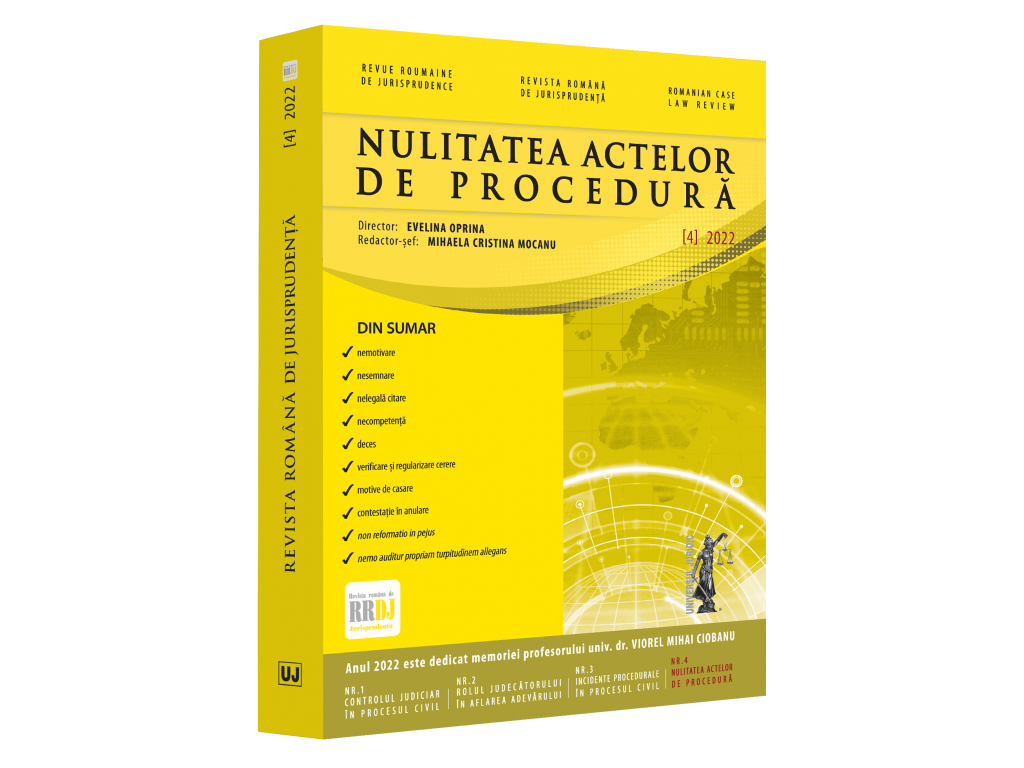Considerations on nullities in arbitration
Some procedural and substantive law aspects of invoking the invalidity of addenda to the employment contract
Abstract
The procedural sanction of nullity also applies in private arbitration proceedings. The arbitration agreement lays down the rules on the constitution of the arbitral tribunal, the rules of procedure to be followed by the arbitral tribunal, the content and form of the arbitral award etc.
According to Article 548 para. (1) of the Civil Procedure Code the arbitration agreement must be concluded in writing, under penalty of nullity, a necessary requirement for its very validity, not only in terms of evidence. The requirement that the arbitration agreement be in writing is intended not only to alert the parties to the legal consequences of the design of the agreement, but also to ensure that evidence of the existence and content of the arbitration agreement is preponderant.
The first concern of the arbitral tribunal is to verify its own competence to settle the dispute before it, i.e. to ascertain whether there is an arbitration agreement which is not null and void or has not become inoperative and which clearly expresses the parties' intention to have recourse to arbitration, thereby excluding the jurisdiction of the courts.
Without a valid and operative arbitration agreement arbitration cannot survive. The invalidity of the arbitration agreement entails the lack of jurisdiction of the arbitration to settle the disputes which are the subject of that agreement, a sanction revealed by an action for annulment.
Keywords: nullity, procedure, arbitration, arbitration agreement, written form








